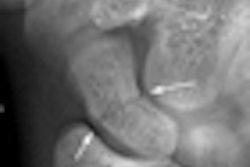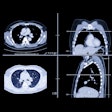
NEW YORK (Reuters Health) - Transcatheter aortic valve implantation (TAVI) is an effective alternative to surgery for patients over 80 years old, researchers from Germany report in the November 9 online issue of the American Journal of Cardiology.
"We have a potent new tool to treat aortic stenosis in elderly patients who would not be ideal candidates for conventional surgery," Dr. Raffi Bekeredjian from the University of Heidelberg told Reuters Health in an e-mail. "The therapeutic success clearly justifies this treatment despite its cost. These patients feel much better after TAVI."
Reports from earlier this year confirmed the value of TAVI for patients facing an unacceptably high risk or who were too sick to undergo conventional surgery and in patients with severe aortic stenosis and reduced left ventricular systolic function, but none of those studies focused on patient quality of life. (See Reuters Health stories 09/09/10, 09/22/10, and 11/05/10.)
In this study, Dr. Bekeredjian and colleagues assessed the quality of life of 87 patients over 80 years old, before and six months after TAVI.
Six patients (6.9%) died within 30 days after implantation, and 28 survivors (35%) required pacemaker implantation, both within the expected ranges reported in other studies.
Immediate procedural success was confirmed by invasive measurement in all patients, and echocardiographic findings confirmed significant reductions in peak aortic valve gradient and mean aortic valve gradient after the procedure.
All eight health components of the Short Form 36-Item Health Survey improved significantly after TAVI. The greatest improvements in physical components were seen with physical functioning (190% improvement) and the lowest with bodily pain (37% improvement), whereas the greatest improvements in the mental components were seen with vitality (94% improvement) and the lowest with mental health (59% improvement).
There were also significant increases in the Physical Component Summary (PCS, from 28.4 to 46.8) and in the Mental Component Summary (MCS, from 37.3 to 50.6) after TAVI. No patient had a decrease in any score.
Chronic obstructive pulmonary disease, smaller improvements in N-terminal pro-brain natriuretic peptide, previous stroke, and low ejection fraction predicted lower improvements in PCS and MCS.
Although, as noted, this study evaluated quality of life for only six months after TAVI, Dr. Bekeredjian said, "We will continue looking for quality of life changes in this patient population two years after TAVI. This will also include an analysis of prosthesis performance within these two years and changes in left ventricular function."
"These patients might not have many decades to live, but they suffer significantly from this disease," Dr. Bekeredjian added. "We know that quality of life worsens if aortic stenosis is only treated with drugs. Similarly, mortality is very high with conservative treatment. While we have not looked at mortality, we have clearly shown that quality of life improves in many aspects. It seems unacceptable from this standpoint to refuse such treatment to these patients, if they can have a clearly improved life for more years."
By Will Boggs, MD
Source: http://link.reuters.com/dep66q
Am J Cardiol 9 November 2010.
Last Updated: 2010-11-26 9:01:07 -0400 (Reuters Health)
Related Reading
Transcatheter aortic valve implantation leaves 1 in 10 patients with kidney injury, January 12, 2010
Copyright © 2010 Reuters Limited. All rights reserved. Republication or redistribution of Reuters content, including by framing or similar means, is expressly prohibited without the prior written consent of Reuters. Reuters shall not be liable for any errors or delays in the content, or for any actions taken in reliance thereon. Reuters and the Reuters sphere logo are registered trademarks and trademarks of the Reuters group of companies around the world.



















